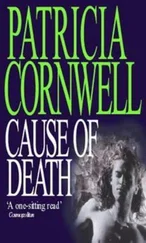“Frankly, Dr. Self, I’m not convinced you meet the criteria.”
“Frankly, Benton, it’s the last thing you want, now, isn’t it? But you have no choice because your hospital is far too shrewd to discriminate against me.”
“Have you ever been diagnosed as bipolar?”
“I’ve never been diagnosed as anything but gifted.”
“Has anybody in your family ever been diagnosed as bipolar?”
“What all this will prove in the end, well, that’s your business. That during various mood states the dorsolateral prefrontal cortex of the brain is going to light up, given appropriate external stimuli. So what. PET and fMRI have clearly demonstrated there is an abnormal blood flow in the prefrontal regions and decreased activity in the DLPFC in people who are depressed. So now you throw violence into the mix, and what will you prove, and why does it matter? I know your little experiment wasn’t approved by the Harvard University Committee on Use of Human Subjects.”
“We don’t conduct studies that aren’t approved.”
“These healthy control subjects. Are they still healthy when you’re done? What happens to the not-so-healthy subject? The poor wretch with a history of depression, schizophrenia, bipolar or other disorder, who also has a history of hurting themselves or others or trying to, or obsessively fantasizing about it.”
“I take it Jackie briefed you,” he says.
“Not quite. She wouldn’t know the dorsolateral prefrontal cortex from a small cod. Studies of how the brain responds to maternal criticism and praise have been done before. So now you throw violence into the mix, and what will you prove, and why does it matter? You show what’s different about the brains of violent versus nonviolent individuals and what does it prove, and what does it matter? Would it have stopped the Sandman?”
“The Sandman?”
“If you looked at his brain, you’d see Iraq. And then what? Would you magically extract Iraq and he’d be fine?”
“Is the e-mail from him?”
“I don’t know who he is.”
“Might he be the disturbed person you referred to Dr. Maroni?”
“I don’t understand what you see in Kay,” she says. “Does she smell like the morgue when she comes home? But then, you’re not there when she comes home.”
“Based on what you’ve said, you got the e-mail several days after Drew’s body was found. A coincidence? If you have information about her murder, you need to tell me,” Benton says. “I’m asking you to tell me. This is very serious.”
She stretches her legs and with her bare foot touches the table between them. “If I kicked this recorder off the table and it broke, what then?”
“Whoever killed Drew will kill again,” he says.
“If I kicked this recorder”—she touches it with her bare toe and moves it a little—“what might we say and what might we do?”
Benton gets up from his chair. “Do you want someone else murdered, Dr. Self?” He picks up the recorder but doesn’t turn it off. “Haven’t you been through this before?”
“And there it is,” she says from the bed. “That’s the conspiracy. Kay will lie about me again. Just like before.”
Benton opens the door. “No,” he says. “It will be much worse this time.”
Eight p.m. in Venice. Maroni refills his wineglass and smells the unpleasant canal smell below his open window as daylight wanes. Clouds are piled halfway up the sky in a thick, frothy layer, and along the horizon is the first touch of gold.
“Manic as hell.” Benton Wesley’s voice is clear, as if he is here instead of in Massachusetts. “I can’t be clinical or appropriate. I can’t sit there and listen to her manipulations and lies. Get someone else. I’m done with her. I’m handling it badly, Paulo. Like a cop, not a clinician.”
Dr. Maroni sits before his apartment window, drinking a very nice Barolo that is being spoiled by this conversation. He can’t get away from Marilyn Self. She has invaded his hospital. She has invaded Rome. Now she has followed him to Venice.
“What I’m asking is if I can remove her from the research study. I don’t want to scan her,” Benton says.
“Certainly I won’t tell you what to do,” Dr. Maroni replies. “It’s your study. But if you want my recommendation? Don’t piss her off. Go ahead and scan her. Make it a pleasant experience and just assume the data is no good. Then she’s gone.”
“What do you mean ‘gone’?”
“I see you haven’t been informed. She’s been discharged and is leaving after the scan,” Dr. Maroni says, and through his open shutters, the canal is the color of green olives and as smooth as glass. “Have you talked with Otto?”
“Otto?” Benton says.
“Captain Poma.”
“I know who he is. Why would I talk to him about this?”
“I had dinner with him last night in Rome. I’m surprised he hasn’t contacted you. He’s on his way to the U.S. In the air as we speak.”
“Jesus Christ.”
“He wants to talk to Dr. Self about Drew Martin. You see, he feels sure she has information and isn’t coming forward with it.”
“Please tell me you didn’t.”
“I didn’t. He knows anyway.”
“I don’t see how that’s possible,” Benton says. “Do you realize what she’ll do if she thinks we told anybody she’s a patient here?”
A water taxi slowly rumbles past, and water laps against Dr. Maroni’s apartment.
“I assumed he got the information from you,” he says. “Or Kay. Since both of you are members of the IIR and are investigating Drew Martin’s murder.”
“He certainly didn’t.”
“What about Lucy?”
“Neither Kay nor Lucy knows Dr. Self is here,” Benton says.
“Lucy is good friends with Josh.”
“Jesus Christ. She sees him when she’s scanned. They talk about computers. Why would he tell her?”
Across the canal, a seagull on a rooftop cries like a cat, and a tourist tosses bread to it, and the bird cries more.
“What I’m saying is hypothetical, of course,” Dr. Maroni says. “I suppose it entered my mind because he calls her often when the computer’s down or there’s some other problem he can’t fix. You see, it’s too much for Josh to be an MRI tech and the IT.”
“What?”
“The question is where she’ll go and what further trouble she’ll cause.”
“New York, I assume,” Benton says.
“You’ll tell me when you know.” Dr. Maroni drinks. “This is all hypothetical. I mean about Lucy.”
“Even if Josh told her, are you making the leap that she then told Captain Poma, who she doesn’t even know?”
“We need to monitor Dr. Self when she leaves,” Dr. Maroni says. “She’s going to cause trouble.”
“What is all this cryptic talk? I don’t understand,” Benton says.
“I can see that. It’s a shame. Well, no great matter. She’ll be gone. You’ll tell me where she goes.”
“No great matter? If she finds out someone told Captain Poma she’s a patient at McLean or was a patient here, it’s a HIPAA violation. She’ll cause trouble, all right, which is exactly what she wants.”
“I have no control over what he tells her or when. The Carabinieri’s in charge of the investigation.”
“I don’t understand what’s going on here, Paulo. When I did the SCID, she told me about the patient she referred to you,” Benton says, frustration in his voice. “I don’t understand why you didn’t tell me.”
Along the canal, apartment facades are muted pastel shades, and brick is exposed where the plaster is worn away. A polished teak boat passes beneath an arched brick bridge, and the captain stands, and the bridge is very low, and his head almost touches it. He works the throttle with his thumb.
Читать дальше












